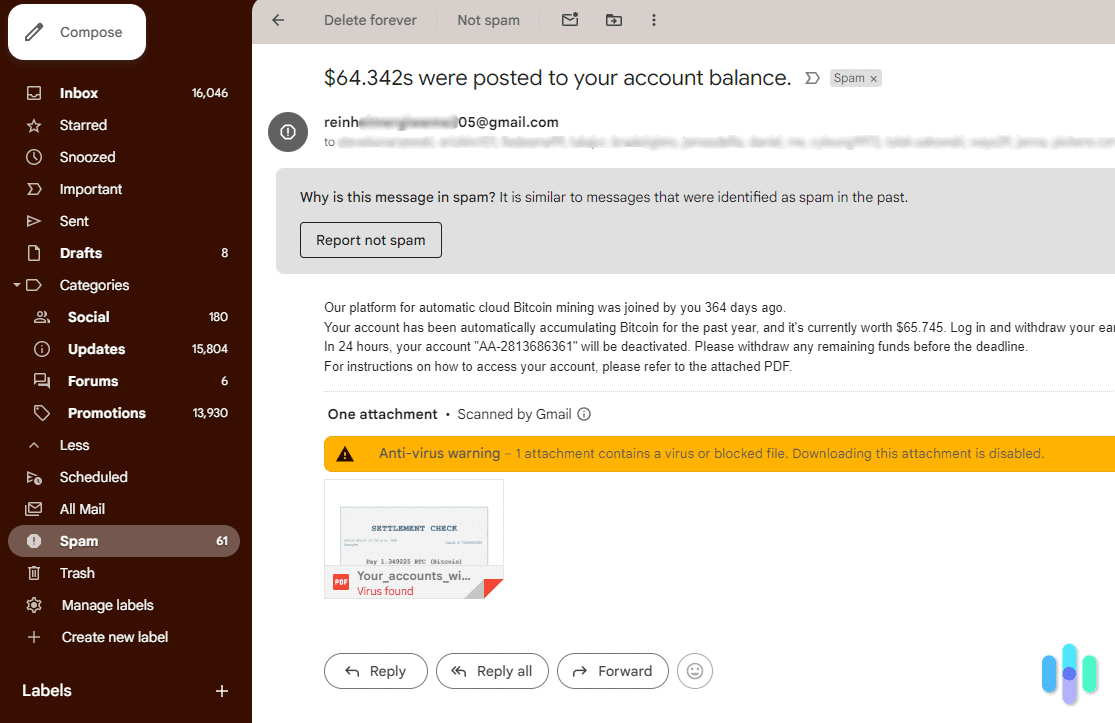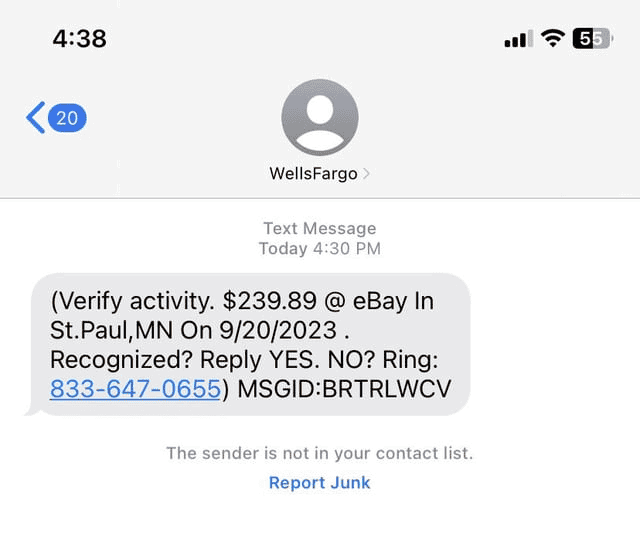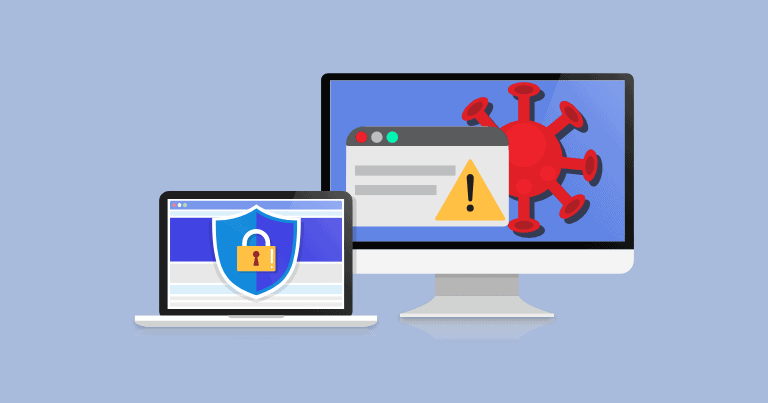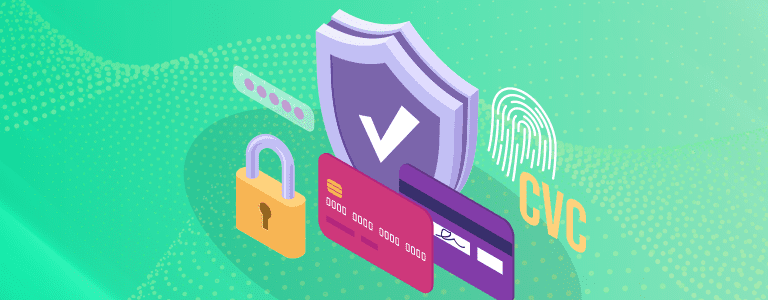Illegal phone spamming and robocalls aren’t just annoying and don’t just stop at someone calling about your car’s extended warranty. It’s actually become one of the top consumer complaints in the Federal Communications Commission (FCC). According to a 2022 report from the National Consumer Law Center (NCLC), around 33 million robocalls are made to Americans every day — that’s more than 12 billion calls per year.1
And yes, most of those calls are illegal. Government regulations state that telemarketing calls are only legal if the recipient has expressed prior consent. Of course, that’s not typically the case. Many callers are getting away with marketing loopholes and bad business practices.
Luckily, the government is taking serious action against spammers. The FCC actually approved regulations that put an end to some of these loopholes. This article provides all the information you need to educate yourself, protect your privacy, and stay a step ahead of scammers.
What Is Spam?
Spam is an umbrella term for unwanted messages that are sent to a large group of people for commercial purposes, phishing attacks, and the spreading of malware. These messages can be sent through social media, email, text, and, of course, through phone calls.
>> Also Read: Phishing Text Messages: A Guide to “Smishing”
Spam has become a real threat throughout the years. Users are constantly under attack by cybercriminals and spam is one of their main vehicles. To protect yourself from spam, it’s important to learn how to recognize it. Here are some of the most common types of spam you may encounter:
Social Media Spam
Social media spammers tend to create fake accounts, leave inappropriate comments, and send unrequested promotional DM’s.
Email Spam
Email is the most well-known type of spam. Users are protected under the CAN-SPAM Act, but unfortunately, email spam is still prevalent.
SMS Spam
Similar to email spam but sent via text. This type of spam is a violation of the Telephone Consumer Protection Act.
Phone Spam
Unsolicited phone calls like those about your car’s extended warranty or to let you know that the IRS is hunting you down for the million dollars you owe. Ironically, we got a spam call as we were writing about spam phone calls. That should tell you how common they are.
Messenger Spam
Spam messages are received on messenger websites like social media platforms. Instagram, Snapchat, and Facebook are some of the most common platforms where you might be spammed.
>> Read Next: Staying Safe From Chatbot Scams: Your Ultimate Guide
SEO Spam
Beware of deceptive content when browsing online. Many spammers manipulate users who use search engines like Google. They use techniques like “key word stuffing” to force key words and drive traffic to promotional webpages and malicious links.
The Risks of Spam
Spam is not just frustrating or something to poke fun at; it’s also a real threat. Numerous security risks can arise, including malware infection, phishing attacks, data breaches, and theft. Spam calls can be incredibly dangerous and prevalent. They are an avenue for social engineering scams, identity theft, account hacking, unauthorized recordings, and fraud-based crimes.
Mobile carriers implemented a term called “spam risk,” which is a label given to potentially fraudulent phone numbers. Phone companies use advanced algorithms and machine learning to study suspicious behavior and automatically flag these calls. Users can then choose to block these callers and prevent any future contact.
Types of Spam Calls
Many spammers use personalized audio messages that simulate a real human. These robocalls can even address the recipient by his or her name. Some of the most common types of calls include:
- IRS scams
- Fake charity events
- Travel scams
- Loan and financial scams
- Phishing as customer care agents
- Spoofing calls
How the FCC Aims to Protect Your Privacy
The FCC is taking serious steps toward protecting consumer privacy by:
- Enabling phone companies to filter and automatically block unwanted calls based on algorithmic behavior and analytics
- Requiring phone companies to implement caller ID authentication to reduce illegal spoofing
- Giving consumers more tools to label, block, and report spam calls
- Issuing millions of dollars for law enforcement that directly targets robocalls and spammers
Federal Laws That Regulate Spam Calls
Users are protected through both federal and state laws, as well as through additional penalties established by phone providers. The most notable federal laws that regulate spam calls are:
Telephone Consumer Protection Act
The number of consumer complaints about telemarketing calls has drastically increased. In response, Congress passed the federal Telephone Consumer Protection Act (TCPA), which aims to reduce the number of unsolicited calls and protect the consumer’s privacy.
It restricts marketers from using prerecorded voice messages, sending unsolicited faxes, and even prevents them from calling consumers who are registered in the Do Not Call Registry. TCPA violations have penalties of up to $10,000 per call.
Federal Communications Commission Rule
This rule prohibits the use of automatic dialers with prerecorded messages. There are, however, exceptions to the rule in cases where an emergency is presented or contact is being made on behalf of a tax-exempt nonprofit organization.
Pallone-Thune Telephone Robocall Abuse Criminal Enforcement and Deterrence Act (TRACED)
This law helps consumers identify and avoid robocalls with more ease. It forces companies to implement an industry-developed standard called the SHAKEN/STIR system, which prevents scammers from making calls that have inaccurate caller ID information.
Telemarketing Sales Rule
This federal law prohibits telemarketers from calling recipients if they have previously stated they do not wish to receive communication.
How to Avoid Spam Calls
Although spammers are incredibly savvy and continuously find ways to exploit people, there are certain precautions users can take in order to avoid spam calls. The FCC recommends the following:
- Do not answer calls from unknown numbers.
- Be aware of sneaky tricks like calls from a “local” number. Many spammers use a false number with a local area code.
- If phishing occurs and you receive a call from a person pretending to represent a company or government agency, hang up and call the agency directly.
- Reach out to your phone company and inquire about any blocking tools they might offer. Consider using third-party apps if necessary.
- Register your number on the Do Not Call List provided by the Federal Trade Commission (FTC). Legitimate telemarketers will avoid contacting numbers on that list.
- Never give out personally identifiable information over unexpected or suspicious calls.
Most smartphones and phone companies also offer blocking tools for their customers. Contact your phone provider and adjust the settings on your mobile device.
How to block spam calls on iPhone
Go to the Settings app, tap on Phone, and enable the “Silence Unknown Callers” feature. All calls from unregistered numbers will be silenced and sent straight to voicemail.
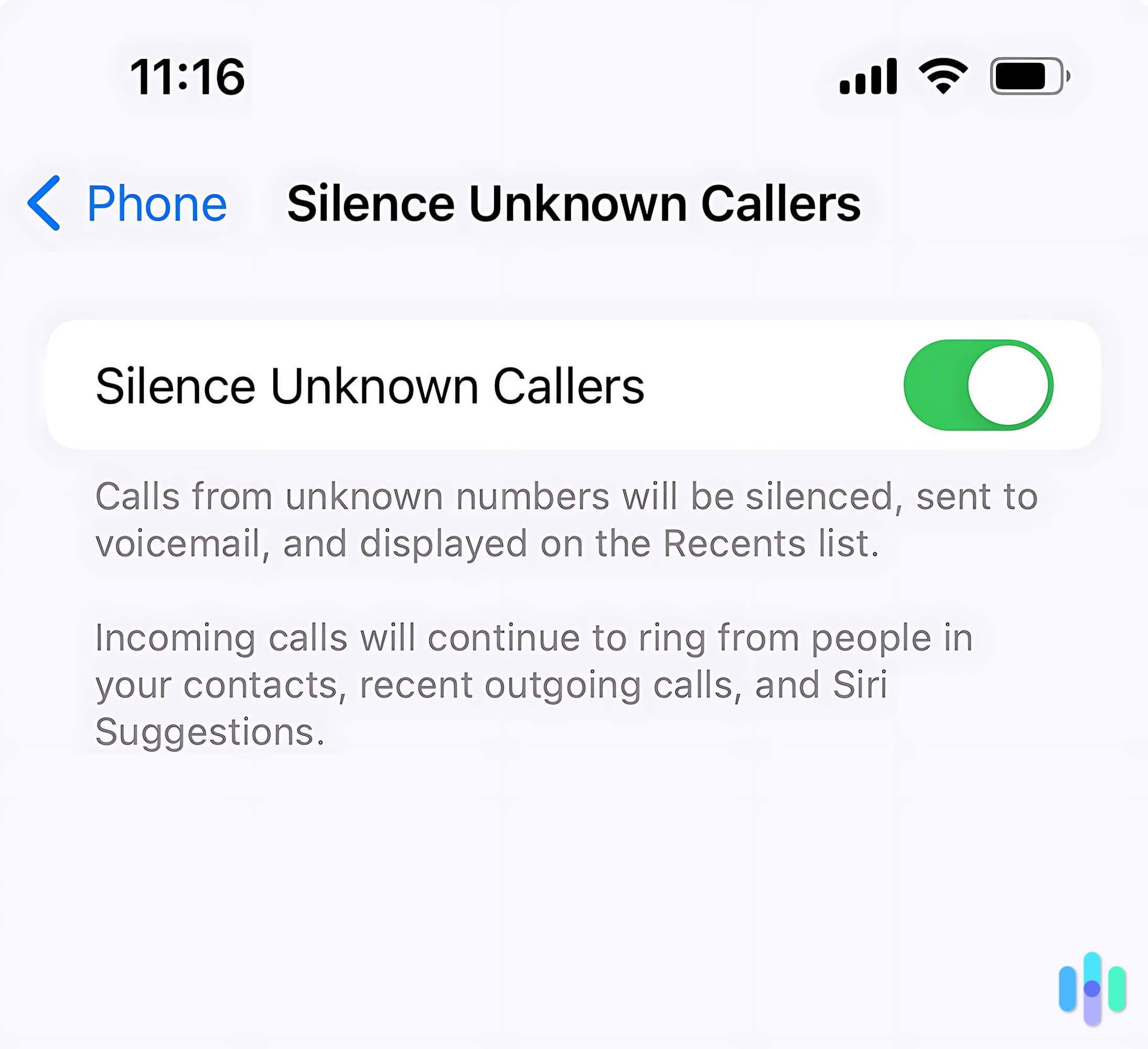
How to block spam calls on Android
Android phones provide better filtering options for users struggling with spam calls. “Caller ID and Spam Protection” is always on by default. You can manage this feature by visiting the Settings app and tapping on Spam and Call Screen. Make sure the See Caller & Spam ID is toggled on, along with the Filter Spam Calls setting.
Recap: How to Stop Spam Calls
Spam calls are unwanted phone calls that are typically sent to a large number of people for commercial purposes, phishing, and the spreading of malware. Many spammers use personalized audio recordings that simulate a real human. These robocalls are extremely common and usually conduct IRS scams, travel scams, financial scams, phishing, and spoofing calls.
The law protects consumers against this type of spam. The Federal Communications Commission aims to help consumers get back their power and choose who they want to communicate with. Some of the federal laws that offer protection are the Telephone Consumer Protection Act, Federal Communications Commission Rule, Pallone-Thune Telephone Robocall Abuse Criminal Enforcement and Deterrence Act (TRACED), and Telemarketing Sales Rule.
The FCC recommends registering your number on the Do Not Call List through the Federal Trade Commission. To avoid answering calls from unknown numbers, reach out to your phone company and inquire about any blocking tools, and, please, never give out personal information over unexpected or suspicious calls.
Frequently Asked Questions
-
What is the FCC?
The FCC is short for the Federal Communications Commission, which is a government agency that regulates international communications by radio, television, wire, satellite, and cable in all 50 states. It is overseen by Congress and is responsible for enforcing communication laws.
-
What laws protect me from receiving spam calls?
Consumers are protected through both federal and state laws. Some of these include the Telephone Consumer Protection Act, Federal Communications Commission Rule, Pallone-Thune Telephone Robocall Abuse Criminal Enforcement and Deterrence Act (TRACED), and Telemarketing Sales Rule.
-
What types of spam calls might I receive?
Some common spam calls include IRS scams, charity events, travel scams, loan and financial scams, phishing, and spoofing calls.
-
What other types of spam should I look out for?
Spam has become a real threat throughout the years. In order to protect yourself from spam, you must first learn how to recognize it. Some of the most common types of spam are social media spam, email spam, texting (SMS) spam, phone spam, messenger spam, and SEO spam.
-
Can I block spam directly on my phone?
Yes. Most smartphones and phone companies also offer blocking features. If you have an Android, visit the Settings app and tap on Spam and Call Screen. Make sure the See Caller & Spam ID is toggled on, along with the Filter Spam Calls setting. If you have an iPhone, go to the Settings app, tap on Phone, and enable the “Silence Unknown Callers” feature. All calls from unregistered numbers will be silenced and sent straight to voicemail. You can also call your phone provider to see what blocking tool they offer.


